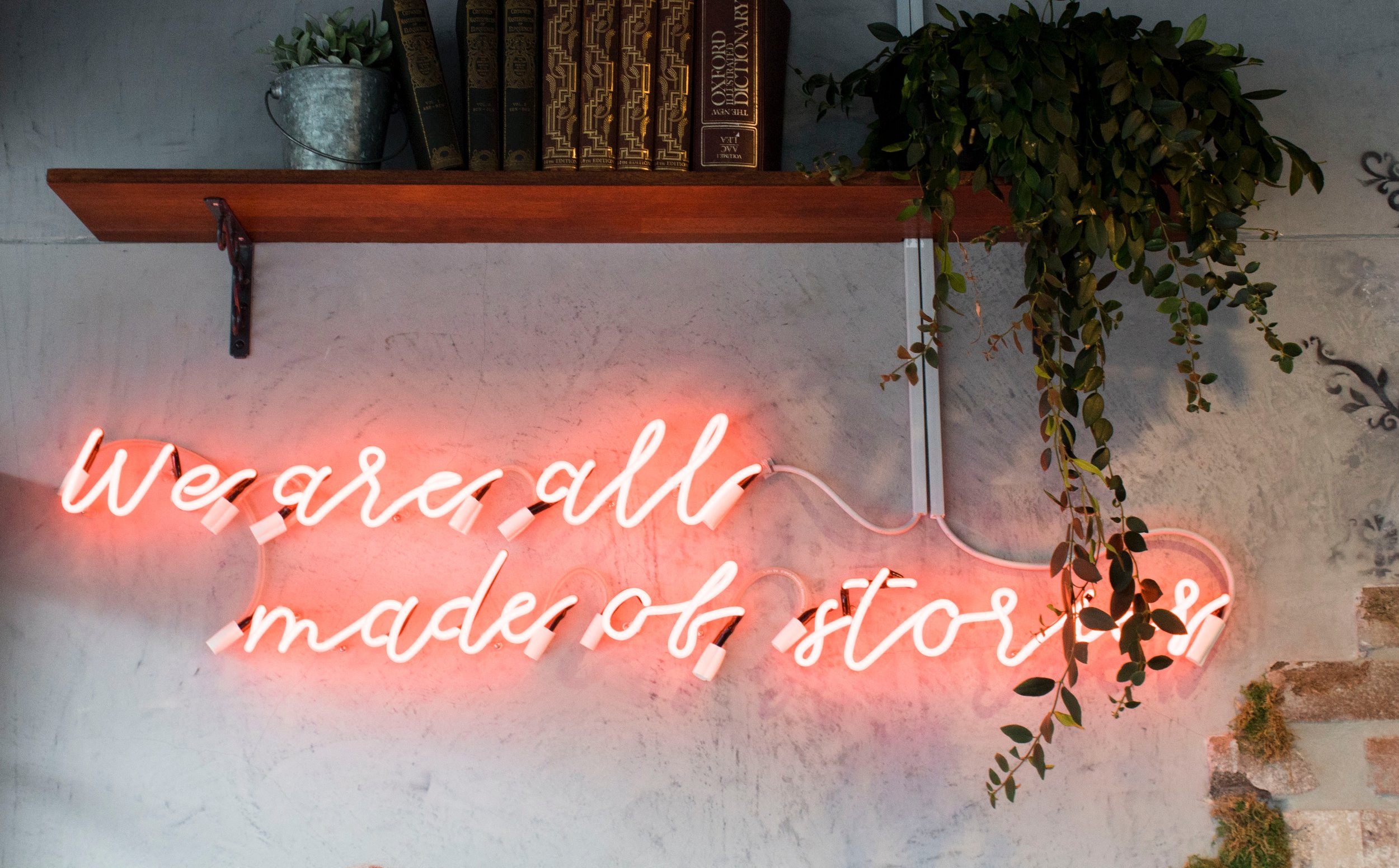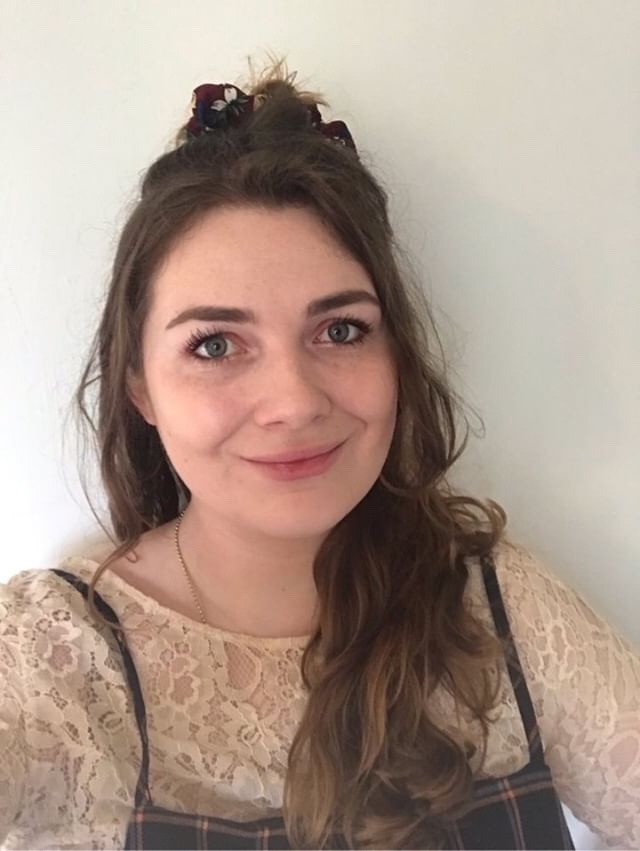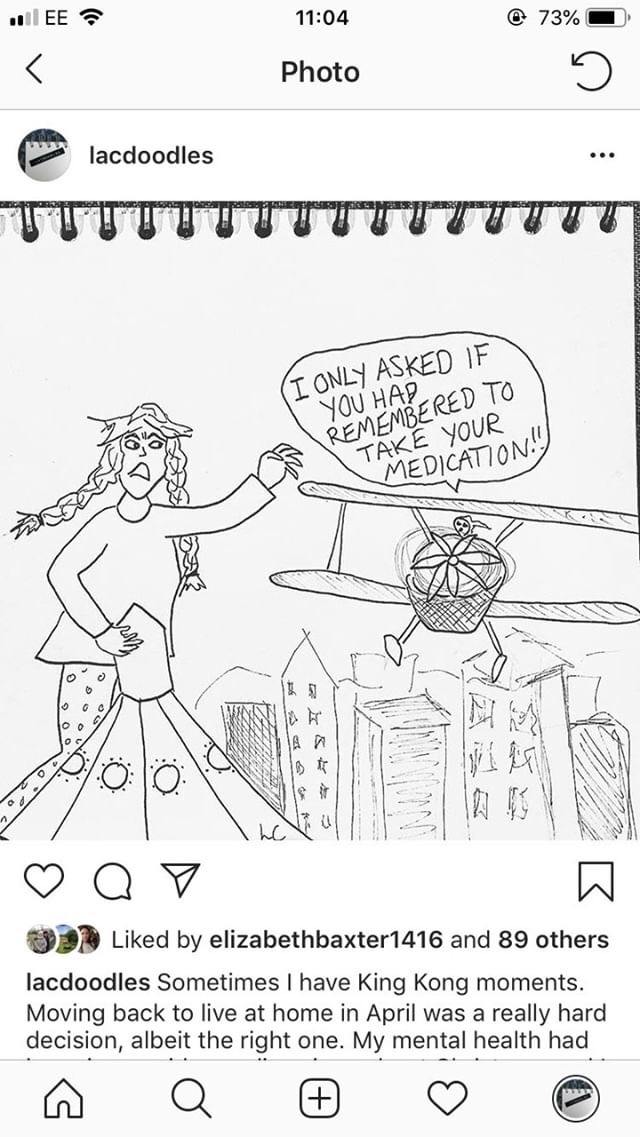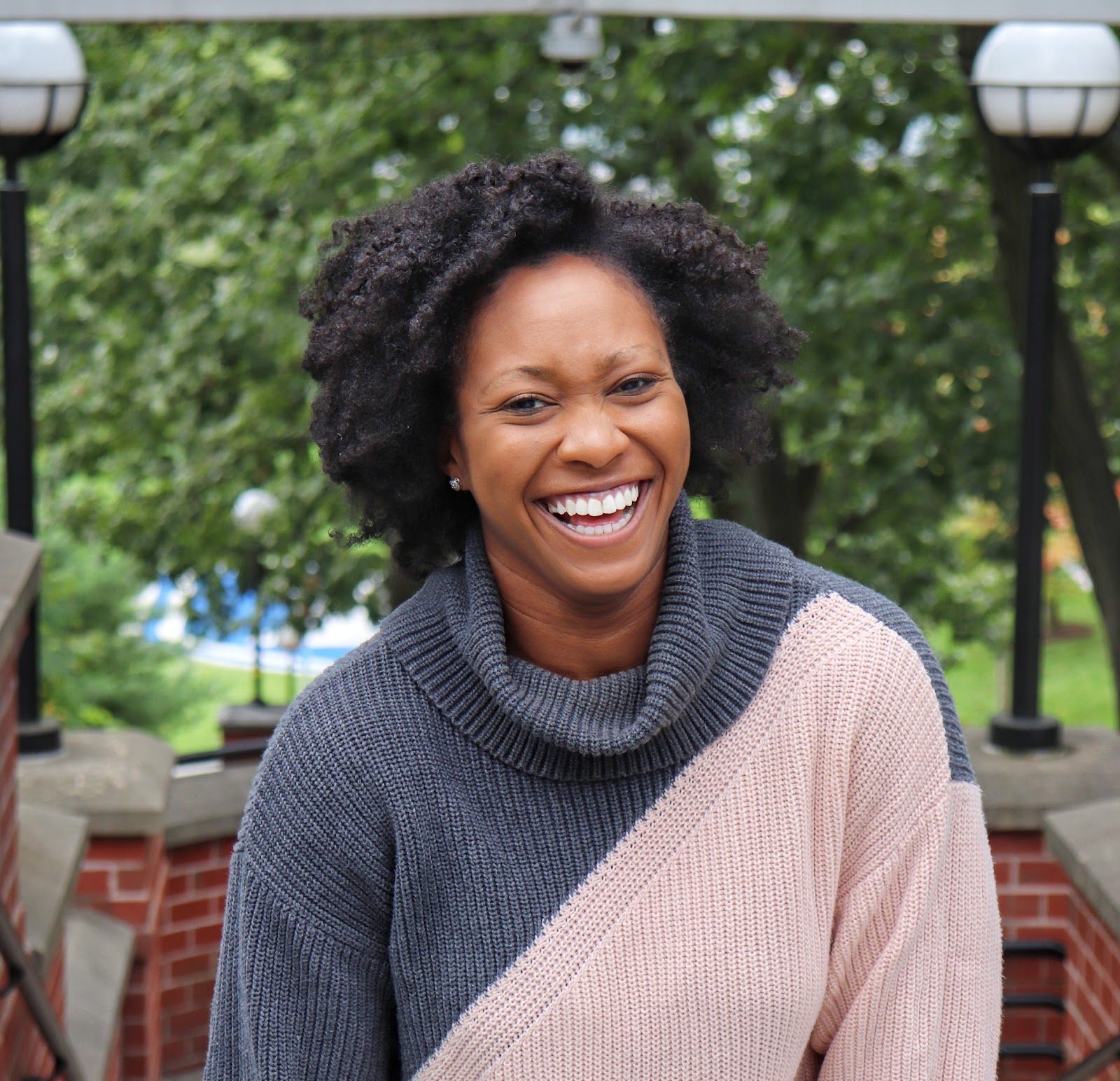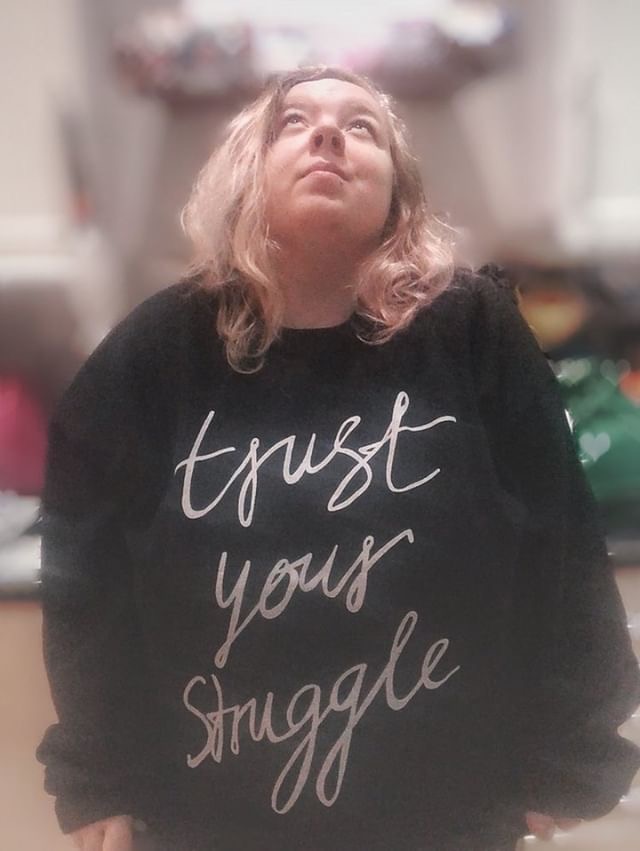For the entire month of March we are highlighting people’s mental health stories across our social media channels (@modernonsocial) to help reduce stigma. To help us with our goal, share your own story with a picture using our hashtag: #realmentalhealth. Make sure you tag us @modernonsocial for a chance to be featured on our page! Here are 5 real mental health stories from inspirational women fighting to remove stigma surrounding mental health.
Laura Cundall
Instagram: @lacdoodles
#realmentalhealth story:
“I have really struggled with mental health and depression since I was a teenager. I was diagnosed with bipolar disorder at age 20 and have spent the early part of my twenties dealing with a lot of self loathing, not understanding my diagnosis, and being on a total rollercoaster emotionally scattered with pretty frequent breakdowns. Last year I decided to move home and really work on my depression and acute anxiety. The therapy is really tough, so I started doodling as a way to vent. My doodles as an outlet have helped me explain what it’s like to live with bipolar disorder and help control my mental health instead of it controlling me. I’m so glad I’ve been able to take the time out to really face my demons. I’d love my drawings to bring more understanding and also some humour to mental health. It needs to be talked about. The stigma needs to end.”
Christina
Instagram: @misschrissiestyles; Facebook: @misschrissiestyles
#realmentalhealth story:
“The topic of mental health is considered taboo in Chinese culture. Thus, growing up as a first-generation Chinese American, my family seldom brought up conversations about mental health. I still vividly remember when my Kindergarten teacher recommended I see a psychotherapist during a parent-teacher conference because I was “too timid and quiet” in school. Immediately, my mom said my teacher was wrong and that she did not know what she was talking about. Rather than addressing the issue, my mom reassured me that I am a “normal” kid and that I am not “crazy.” Unfortunately, this childhood experience shaped my mindset growing up that receiving mental health treatments is associated with being “crazy.”
_
“Fast-forward today, I am receiving psychotherapy treatment for my anxiety and catastrophic thinking—It took me almost two years to overcome the fear of admitting that I needed professional help to cope with my sudden panic attacks and ongoing anxiety, and to finally understand that getting treatment does not mean I am “crazy.” Getting therapy means that I am strong enough to face my mental health conditions and resilient enough to learn how to cope with my symptoms to become a more functional person.”
–
“There are many psychotherapists out there, and it may take a bit of trial and error before finding the right one. In fact, it took me several attempts before I was able to find the right therapist for myself. Now that I am finally receiving the right therapeutic interventions, I have become more self-aware of my emotions. As a result, I gained better control over my anxiety and over the way I act/express myself to others.”
–
“Through therapy, I was able to learn healthy coping skills and problem-solving techniques that made me more functional. Slowly, but surely, I was able to see behavioral changes within myself, which positively affected my relationship with others.”
_
“My anxiety may be a part of me, but it does not define me. Be sure to seek professional help, and don’t be afraid to “shop around” for the proper therapist!”
Kay Uimari
Personal Instagram: @mindbykay; Blog Instagram: @rose.mindeddd; Website: www.rose-minded.com
#realmentalhealthstory:
“Depression was one of the first disorders I struggled with and is still a constant battle years after my diagnosis and treatment. I consider myself to be in recovery, although depression and I walk together each and every hour of every day. Now I find myself capable of overcoming obstacles I would have thought impossible even before I knew what depression was. My disorders like depression, OCD, and bulimia tried to stop me from experiencing life, they tried to make me weak. But all they did was strengthen my resilience and help me slowly gain an understanding of the complexities of life, happiness, and reality. I am not always sad and I am not always happy, but I am always myself and that is enough for me.”
Ivy Watts
Facebook/Instagram: @beautifullysimplyyou; Twitter: @BeautSimpYou; Website: beautifullysimplyyou.com
#realmentalhealth story:
“Most of my youth and young adult life, I struggled with anxiety that I didn’t even know was anxiety. I always believed mental health was someone else’s problem and would never affect me, especially as an African American female. I always looked like I had it all together, as a star athlete and academic, and I believed the stigma society tells us about mental illness, so I held in my struggles for fear of being labeled as weak and having anyone think I was anything less than the perfect image I had created for myself. As an athlete who struggled, I developed an eating disorder and the anxiety and depression told me that I wasn’t good enough, and eventually after years of untreated mental health problems, I struggled with suicidal thoughts. Finally, by seeking help through therapy and learning to love myself, I was able to get my life back, and find the beauty not only in the world around me, but within myself. Therapy truly saved my life, and I am so thankful I now see the strength in speaking up and telling my story.”
Hev Bailey
Blog: http://www.crosswordsnotwires.wordpress.com; Instagram: @crosswordsnotwires; Twitter: @xwordsxwires; Facebook: @crosswordsnotwires
#realmentalhealth story:
“Most of my life I have battled with my mental health, until I finally realized I didn’t have to. I was diagnosed with borderline personality disorder several years ago and have been talking about mental health and mental illnesses ever since. It’s an uncomfortable conversation for some, but probably the most important conversation you’ll ever have.”
